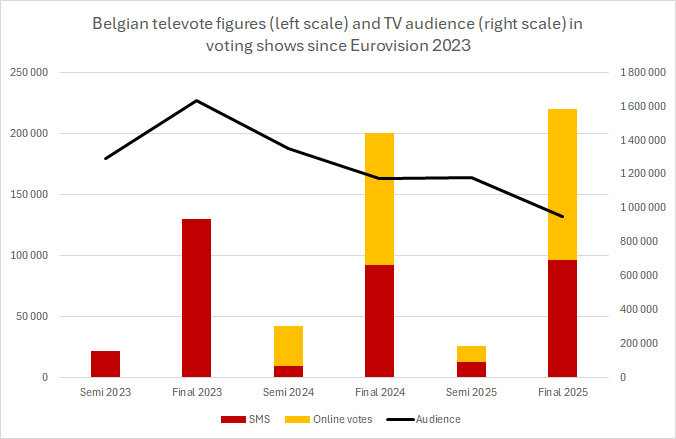Featured image: JJ wins the 2025 Eurovision Song Contest. Image credit: Corinne Cumming/EBU
The Eurovision 2026 season has officially begun, with songs eligible from September 1st and countries confirming their participation. But the controversies of 2024 and 2025 still hang heavy, as several broadcasters threaten to withdraw over Israel’s continued involvement. This week the EBU has announced a vote regarding Israel’s participation is scheduled for November
Let me be clear: I have no issue with Israel completing in Eurovision. In fact, some of their entries have been fantastic – Golden Boy is still a certified banger. And as an Australian I am hardly in a position to argue about what counts as “European.” Eligibility is defined by membership to the EBU, not geography.

Image credit: Alma Bengtsson/EBU
The real problem is how Israel’s recent behaviour has undermined the credibility of the contest. Yes, sneaking political undertones into songs is practically a Eurovision tradition, and while I think Israel’s 2024 and 2025 songs laid it on a bit thick, that’s ultimately up to views to interpret. What can’t be shrugged off, however, is the state-sponsored, heavily funded ad campaign that encouraged people to vote – and to vote multiple times.
Advertising itself is not against the official rules. Other artists have promoted their entries in the past. But normally this is paid for the artist, their record label, or by their national broadcaster – not by a government throwing resources at swaying the outcome. This scale of intervention changes the game.
And then there’s the voting system. Officially, fans can cast up to 20 votes per person. In practice, the Eurovision app allows unlimited transactions with the same card and email – 20 votes at a time, over and over. Combine that loophole with mass media social campaigns and you get what we saw in Belgium in 2025: falling TV viewership, but a spike in votes. The maths isn’t mathing.

Image credit: ESC Xtra
The EBU profits handsomely from televoting. I usually vote 20 times in the semi that Australia participates in, and another 20 in the grand final. But when the results feel predetermined by government-backed vote stacking, why bother? If the outcome is a foregone conclusion, is there even a point to watching?
Israeli media framed their televote a “moral victory.” But victory achieved through manipulation isn’t a victory at all. If Eurovision wants to survive as a meaningful cultural institution, it cannot let any country – Israel included – turn it into a propaganda machine.
